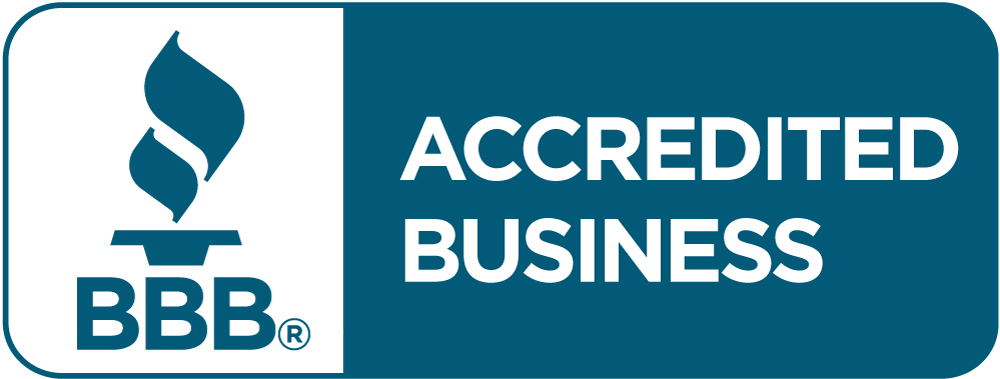Quick Links
ToggleIf you own a small restaurant, then you already know that running your own business can be challenging. From attracting customers to ensuring you have enough cash flow on-hand, the restaurant industry is full of ups and downs. One thing that has helped take some of the stress out of owning a small restaurant is merchant cash advances (MCAs). This funding doesn’t require collateral or credit checks so you can get money quickly—and without having to worry about getting turned down for traditional financing options.
While there are many advantages of using a merchant cash advance, it’s important to know how they work and the types of conditions under which they can be used so you can make sure it’s the right choice for your business. In this guide, we cover everything you need to know about merchant cash advances for restaurant owners.
What is a Merchant Cash Advance (MCA)?
A merchant cash advance, also known as an MCA, is a type of financing that allows small business owners to use their future credit card sales as collateral.
With a merchant cash advance, a lender acquires a company’s future cash flow. Then, the business’s future card transactions, together with a fee the lender charges, are used to repay the borrowed funds. The lender usually takes a fixed percentage, known as a “holdback,” from each subsequent sale made via your card terminal until the loan is fully repaid. This also allows the repayment amount to always be sent straight to the lender. It also means the business owner doesn’t have to withdraw funds from their bank account to make their repayments.
Because they’re secured by your existing revenue stream and not by personal assets like your home or car, MCAs are ideal for small businesses struggling with cash flow issues or in need of a fast capital boost.
Benefits of a Merchant Cash Advance for Small Restaurants
Merchant cash advances are one of the most popular types of small business funding for those working within the restaurant industry. This is because of the several benefits they offer to small restaurant owners. These benefits include:
1. Flexible Repayments
Merchant cash advances are a flexible financing solution because they allow for repayment over time based on your restaurant’s revenue. The variable payments of an MCA fluctuate with the sales of your business. That means if your restaurant’s sales go down, so too do your payments. Of course, the opposite is also true; if your restaurant is experiencing a busy period and an increase in sales, then your repayments will increase in proportion to this amount.
This is a significant advantage for restaurant owners who worry about the consistency of their earnings and want the peace of mind that comes with knowing they’re not bound to a sizable fixed monthly payment.
2. Less Likely to Default
The flexibility of a merchant cash advance can also make defaulting on this type of finance less likely than defaulting on a traditional business loan. This is because MCA payments are automatically collected, either from your credit card provider or from your business bank account through an automated clearing house (ACH).
The simplicity of not having to worry about missing a repayment or being penalized with late fees is another element that works in a restaurant owner’s favor—especially when they have more important matters to deal with on a daily basis.
3. Suitable for Lower Credit Scores
It isn’t unusual for small business owners, such as those operating restaurants, to be turned away from traditional financing due to possessing a lower credit score.
Thankfully, a merchant cash advance does not require an applicant to have a high credit score in order to apply or be granted the required funding. While your personal credit is frequently reviewed as part of the underwriting process, it doesn’t play a major role in the MCA provider’s final decision.
Instead, the amount of funding you’re eligible for is determined by the volume of sales that are made by your restaurant. This is because your restaurant’s credit card sales act as collateral, thus convincing lenders as to whether you have the financial means to pay back the debt.
4. Quick Online Application Process
A normal bank loan might take anywhere from 30 to 90 days to process once an application is submitted. Following that, you’ll have to submit a slew of paperwork and deal with frequent back and forth with the bank.
This already puts restaurant operators at a major disadvantage, since their industry moves at a rapid pace. As a result, when restaurant owners need quick financing for their business, they cannot afford any setbacks.
Fortunately, merchant cash advances offered by online lenders like Zinch have a quick and simple application process that can be completed online in as little as minutes—not days or weeks.
5. Speedy Approvals
Restaurant owners don’t have time to waste waiting for an application outcome. With a merchant cash advance from an online lender, however, they don’t need to worry. With a quick and easy online application process also comes speedy approvals. In fact, many online MCA providers guarantee approvals within just 24 hours, so small restaurant owners can know exactly where they stand.
6. Fast Access to Required Funds
Cash flow is a critical part of running any small business, including restaurants. Merchant cash advances can help you get the money you need fast, so you can pay bills and keep your restaurant running smoothly. Look for an MCA provider who can give you access to your required funds in as little as 48 hours—like Zinch—as this will ease any further financial burden on your restaurant and allow you to take advantage of unmissable opportunities as soon as they arise.
7. No Collateral Required
Merchant cash advances can be likened to an unsecured business loan. This means that except for a portion of your upcoming sales, you won’t have to put up any other form of business or personal collateral as security. This allows you to obtain the funds you require without putting your home, vehicle, or personal bank account in jeopardy. Regardless of whether you have other available assets, you should have a high chance of approval—as long as you have a strong track record of prior sales within your restaurant.
8. High Borrowing Limits
MCAs often let you borrow a large sum of money for your restaurant’s needs. A Zinch Flex MCA, for example, provides funding ranging from $10,000 to $250,000.
The option to access large amounts of money in a single transaction can provide you with the financial strength you require to make life-changing investments in your restaurant.
Just keep in mind that the amount you’re approved for is determined by the volume of your sales. This provides the lender with an estimate of how much revenue you’ll have on hand to repay the advance.
9. Fewer Lending Restrictions Than Traditional Loans
A merchant cash advance removes many of the limitations that some bank loans have, which restrict how restaurant owners can spend their approved funds. This means you can use your boost in working capital for anything your small restaurant requires, such as new equipment, employee salaries, marketing campaigns, or renovations, for example.
Restaurant owners are more at ease knowing they have greater control over how their cash can be used to help their business thrive.
Risks of a Merchant Cash Advance for Small Restaurants
While an MCA can be a great solution for many restaurant owners, it may not be suitable for everyone. As with any financial decision, there are some possible disadvantages to consider. We’ve included each of these below.
1. Can be More Expensive Than Other Types of Small Business Finance
There is no annual percentage rate (APR) on a merchant cash advance because it’s not a loan. Instead, the fee charged is referred to as a “factor rate.” The factor rate on a merchant cash advance can sometimes be higher than the APR on a traditional business loan.
These rates can differ from one lender to the next and are usually based on a number of criteria, such as the type of business you operate, the operational history of your business, your revenue and cash flow, and other elements.
2. Minimum Sale Requirements Apply
Although the eligibility requirements for an MCA are generally less than other forms of finance, there are still some requirements your restaurant must meet in order to gain approval. These not only include the length of time you have been in operation but also how many sales your restaurant makes each month.
3. Involves a Credit Card Processing Company
When obtaining a merchant cash advance, you must collaborate with both the MCA lender and your credit card processing service. You could look for a lender who already works with the processing company you’re using. However, most restaurant owners will select an MCA provider first, then change to a compliant credit card processor.
While this is usually a simple task, some may see it as a disadvantage. Working with two suppliers, rather than a single lender, has the potential to slow down the approval process in some cases.
4. Repayments Reduce Future Restaurant Cash Flow
When planning your restaurant’s budget, you must factor in how the repayment of your MCA will affect your future cash flow. Without proper management, your automatic repayments run the risk of becoming a financial burden.
If your restaurant’s cash flow isn’t good enough to cover the loan payments, then you may want to think twice before getting a merchant cash advance. Doing so could dig into your profit margin more than expected.
5. MCAs Don’t Build Up Your Credit Profile
Because an MCA is not a loan, your payments are not recorded to business credit bureaus. This might be a disadvantage if you’re attempting to improve your credit rating, especially if you’re a fairly new restaurant owner wanting to boost your credit profile.
The good news is that taking out this type of finance won’t have a negative impact on your credit rating—unless you default on a merchant cash advance. That’s because if you fail to pay back your merchant cash advance, your lender can report it. As this can have a detrimental effect on your credit score, you should only take out a merchant cash advance if you are convinced that you will be capable of repaying it.
When You Should Consider a Merchant Cash Advance for Your Restaurant
There are many scenarios where a small restaurant may consider the fast and flexible finance that an MCA can provide. We’ve outlined the most common situations below:
1. You Need a Quick Boost in Working Capital
One of the main reasons to consider a merchant cash advance is when you need cash for your restaurant in a hurry. A merchant cash advance can be a great alternative to traditional bank loans because they are processed quickly—usually within 24 hours—and often have no personal credit checks.
2. You’re Not Eligible for Conventional Business Finance
The other reason to consider getting a merchant cash advance is if you don’t have good personal credit or are unable to get the capital necessary for your restaurant from sources like banks and other traditional financial institutions. If you’re a restaurant entrepreneur with big plans for growth but aren’t able to secure financing from conventional lenders due to poor personal credit or less time in operation, then this may be an alternative route worth exploring.
3. Your Restaurant Experiences Seasonal Fluctuations
Additionally, many small businesses experience seasonal fluctuations in revenue throughout the year. This is particularly true for restaurants operating within destinations that are only popular during certain times of the year, such as resort locations or ski towns.
In this case, obtaining additional funding via a merchant cash advance could help offset these losses by giving restaurant owners access to additional capital when needed most. It also prevents restaurant operators from having to access their own funds to assist their businesses during these slower times.
4. You’re Considering a Restaurant Expansion
Even if your restaurant is doing extremely well, you still might contemplate a merchant cash advance for expansion reasons. This is because an MCA can provide you with the funds you require to move your current business into a larger restaurant facility or expand your restaurant into other locations.
This is particularly vital if a once-in-a-lifetime opportunity for expansion becomes available to your restaurant. Without sufficient working capital on hand, restaurant owners could miss out. With the quick funding boost an MCA provides, however, you can ensure your business can continue on its successful journey.
5. You Want to Increase Your Marketing Efforts
Marketing is a constant requirement for any restaurant—regardless of its size or how long it’s been in operation. It’s the key to boosting your brand awareness, increasing your restaurant’s credibility, and getting more diners within your doors. Marketing can be costly, however, and is, therefore, a business expense that small restaurant owners frequently put off.
The funds you receive from an MCA can give your marketing budget a huge boost, allowing you to create a long-term increase in both your customers and revenue.
6. Your Restaurant Needs New Equipment
Nothing is quite as stressful for a restaurant owner as when a vital piece of equipment fails and needs fixing or replacing. Kitchen equipment is a huge expense for restaurants, and no one wants to jeopardize other areas of their business in order to get that equipment up and running again.
A fast, flexible, and easy-to-obtain MCA can immediately solve this problem by giving restaurant owners the money they need to ensure business continues as usual.
How to Apply for a Merchant Cash Advance for Small Restaurants
Thankfully, getting an MCA for your restaurant doesn’t have to be stressful, especially if you know the step-by-step process to secure the funding you need.
Here are the six steps you can take to apply for a restaurant merchant cash advance today.
Step 1: Find Your MCA Lender
The terms of a merchant cash advance can vary by lender. Therefore, the first thing you’ll want to do is undertake plenty of research to find the best deal for your restaurant. You’ll need to focus your research on online lenders, however, as traditional banks generally don’t provide merchant cash advances.
Identify the most reputable online lenders offering an MCA for restaurant owners, then compare each of their terms. Pay close attention to any associated fees or charges (including their fixed percentage “holdback”), as well as how much funding they can provide and the time frame in which they can do so.
After doing this, you should be able to determine which merchant cash advance provider is most suited to your individual needs.
Step 2: Check Your Eligibility
Before you apply for a merchant cash advance with your chosen lender, it’s important to first make sure that you’re eligible to apply for this type of funding. Eligibility requirements for a merchant cash advance can vary on a lender-by-lender basis, as no two lenders are the same.
Generally, a lender should have minimal eligibility requirements for restaurant owners requiring an MCA, as it is one of the most flexible forms of small business funding.
To qualify for a merchant cash advance with online lender Zinch, for example, a restaurant owner would need to meet the following simple criteria:
- Been in operation for at least 6 months
- Be earning over $10,000 in monthly sales
Step 3: Contact Your MCA Lender
Once you’ve confirmed that your small restaurant is eligible for a merchant cash advance, it’s time to contact your preferred lender to begin the process. Most lenders have an easy online form available. Some offer you the choice of calling them to speak directly to a representative or completing the online form to get started.
The specific procedure for applying for a merchant cash advance will differ somewhat from one lender to another. Some businesses, like Zinch, will match you with a representative who will take the time to learn about your restaurant’s needs and obtain any extra information necessary to finish the approval process. Other lenders, however, may prefer to handle the process online from start to finish.
The most important thing, however, is that your chosen lender will be upfront with you if they believe your restaurant isn’t suited to a merchant cash advance. At Zinch, applicants are notified straight away if they will be unable to gain approval, so as not to waste a small business owner’s time any further.
Step 4: Review Your Customized MCA Proposal
After your application has been accepted, you will get a financing proposal that has been made specifically for your small restaurant’s needs. Additionally, you’ll get the opportunity to ask your Zinch lending specialist any questions you may have, making sure that you fully comprehend your contract before you sign.
It’s crucial to examine the fine print of your contract, whether you use Zinch or another MCA supplier. Make sure you understand what you’re agreeing to because this is a legally binding document. Always get in touch with your representative if something doesn’t make sense or if you want further information about your finance.
Step 5: Sign and Submit Your Proposal
Simply sign and submit your proposal when you’re ready to accept your merchant cash advance offer. The majority of online lenders let you sign all of your required paperwork digitally, helping to streamline the procedure and allowing you to obtain your funds faster.
Step 6: Receive Your Approved Funds
Once you’ve submitted your required documentation, you can expect your acquired capital to be deposited into your designated bank account within as little as 48 hours.
Does Your Small Restaurant Require a Merchant Cash Advance?
In summary, merchant cash advances can be a great option for small restaurants looking to expand their business. They offer flexibility, low rates, and no collateral required. However, there are risks involved in taking out this type of loan, so you should always make sure that it’s right for your needs before applying.
Want to learn more about a Zinch Flex MCA? Contact us at (714) 500-6622 to learn more about your options. You could qualify for up to $250,000 in just 24 hours.









